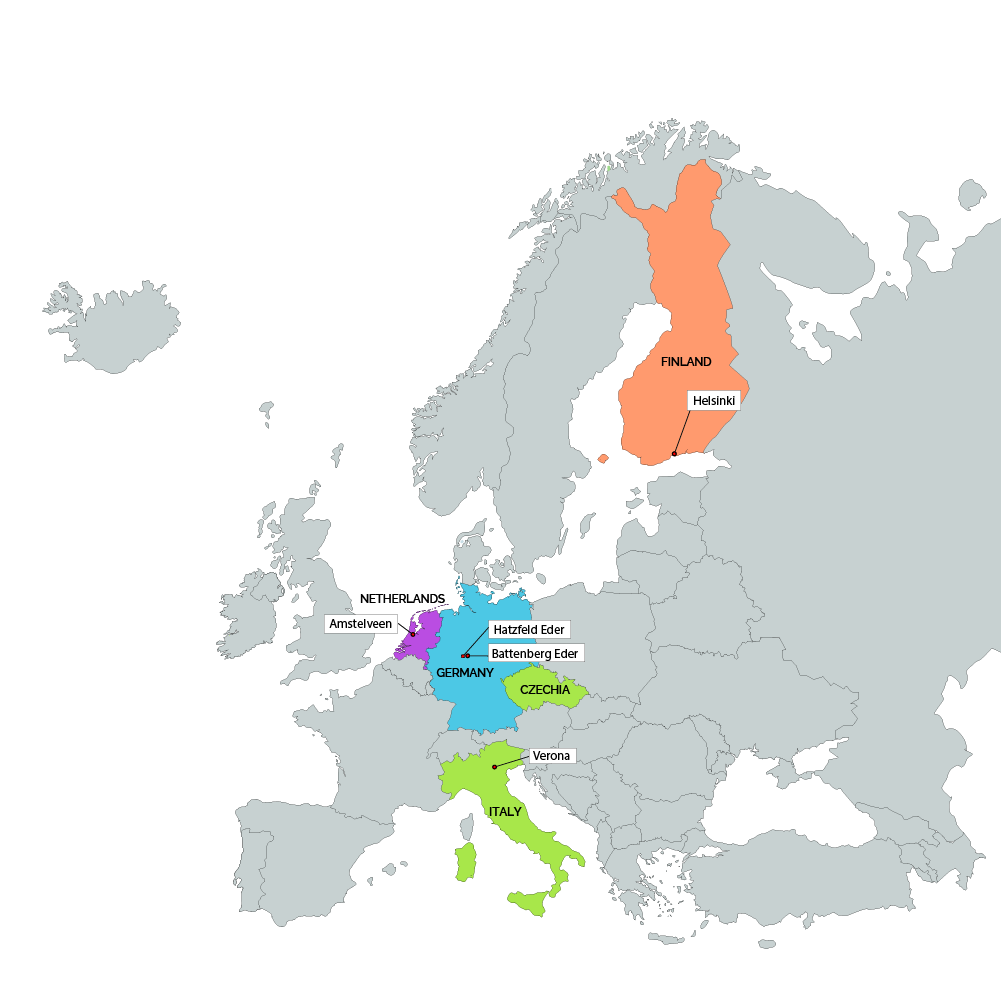Context Battenberg
Battenberg (Eder), a small town in Hesse, is part of the inter-municipal climate protection project in the Ederbergland region, which includes a total of 21,236 inhabitants.
The goal is to significantly reduce greenhouse gas emissions through a long-term strategy.
A key element is the development of an energy and CO₂ balance for all districts, from which concrete measures are derived and implemented together with neighboring municipalities.
Context Hatzfeld
Hatzfeld (Eder), a small town in Hesse, is part of the inter-municipal climate protection project in the Ederbergland region, which includes a total of 21,236 inhabitants.
With the help of federal and state funding, it plans to carry out an energy-efficient modernization of the community center.
This will save around 293,000 kWh per year—equivalent to 29,300 liters of heating oil—and reduce CO₂ emissions by 69 tons annually, cutting climate-damaging greenhouse gases by 90%.
Objectives
- Exchange of knowledge through city-to-city learning.
- Strengthening technical expertise in energy systems.
- Capacity building for the development and management of energy communities in rural areas.
Urban Regeneration & Energy Transition
- Battenberg and Hatzfeld collaborate through multi-level, place-based governance to revitalize semi-rural areas.
- Citizens, through the local energy cooperative, strengthen civic institutions with grassroots energy solutions.
- By ensuring access to affordable clean energy, the initiative promotes inclusive and fair regeneration.
Impact Framework
- Availability: Open spaces enable efficient solar energy deployment.
- Accessibility: Shared infrastructure ensures broad access to clean energy.
- Affordability: Financial tools and community models keep the transition cost-effective.
- Alliance: The local energy cooperative builds strong community partnerships for Positive Energy Districts.





